Filter by
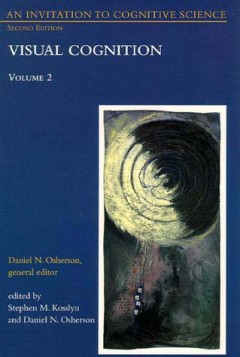
An invitation to cognitive science Volume 2 : Visual Cognition
An Invitation to Cognitive Science provides a point of entry into the vast realm of cognitive science, offering selected examples of issues and theories from many of its subfields. All of the volumes in the second edition contain substantially revised and as well as entirely new chapters.Rather than surveying theories and data in the manner characteristic of many introductory textbooks in the f…
- Edition
- Edisi kedua
- ISBN/ISSN
- 0585053758
- Collation
- 1 online resource : illustrations
- Series Title
- -
- Call Number
- 153 INV
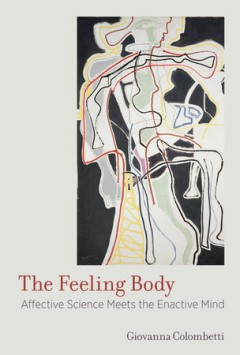
The Feeling Body: Affective Science Meets the Enactive Mind
In The Feeling Body, Giovanna Colombetti takes ideas from the enactive approach developed over the last twenty years in cognitive science and philosophy of mind and applies them for the first time to affective science -- the study of emotions, moods, and feelings. She argues that enactivism entails a view of cognition as not just embodied but also intrinsically affective, and she elaborates on …
- Edition
- -
- ISBN/ISSN
- 9780262318419
- Collation
- 1 online resource (xviii, 270 pages)
- Series Title
- -
- Call Number
- -
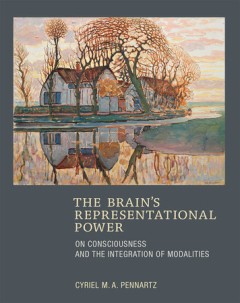
The Brain's Representational Power: On Consciousness and the Integration of M…
Although science has made considerable progress in discovering the neural basis of cognition, how consciousness arises remains elusive. In this book, Pennartz analyzes which aspects of conscious experience can be peeled away to access its core: the relationship between brain processes and the qualitative nature of consciousness. Pennartz traces the problem back to its historical foundations and…
- Edition
- -
- ISBN/ISSN
- 9780262330121
- Collation
- 1 online resource (xi, 382 pages, 12 unnumbered pages of plates) :illustrations (some color)
- Series Title
- -
- Call Number
- -
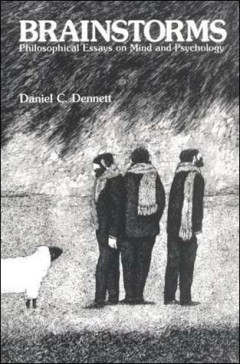
Brainstorms :philosophical essays on mind and psychology
"A Bradford book."This collection of 17 essays by the author offers a comprehensive theory of mind, encompassing traditional issues of consciousness and free will. Using careful arguments and ingenious thought-experiments, the author exposes familiar preconceptions and hobbling institutions.This collection of 17 essays by the author offers a comprehensive theory of mind, encompassing traditiona…
- Edition
- 1st MIT Press edition.
- ISBN/ISSN
- 9780262271509
- Collation
- 1 online resource (xxii, 353 pages)
- Series Title
- -
- Call Number
- -
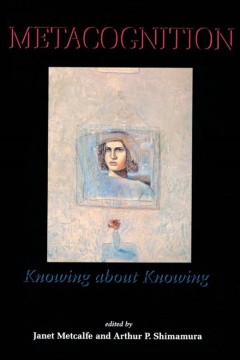
Metacognition: Knowing about Knowing
- Edition
- -
- ISBN/ISSN
- 9780262279697
- Collation
- -
- Series Title
- -
- Call Number
- -
- Edition
- -
- ISBN/ISSN
- 9780262279697
- Collation
- -
- Series Title
- -
- Call Number
- -
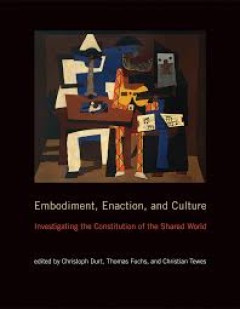
Embodiment enaction and culture investigating the constitution of the shared …
The first interdisciplinary investigation of the cultural context of enactive embodiment, offering perspectives that range from the neurophilosophical to the anthropological."The book brings together new contributions by some of the most renowned scholars in the field and the latest results from up-and-coming researchers. The contributors explore conceptual foundations, drawing on work by Husse…
- Edition
- -
- ISBN/ISSN
- 9780262337120
- Collation
- 1 online resource (viii, 441 pages)
- Series Title
- -
- Call Number
- -
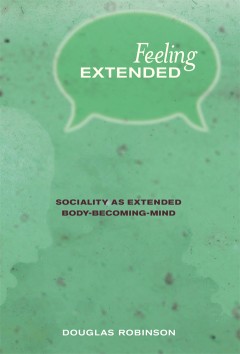
Feeling extended : sociality as extended body-becoming-mind
Within the Extended Mind Thesis (EMT) debate Robinson explores the world of affect and conation as intermediate realms of human being between the physical movements of 'body' and the qualitative movements of 'mind', and shows that affect is not only always in the process of becoming conation, but that affect is transcranial, and tends to become interpersonal conation. Affective-becoming-conativ…
- Edition
- -
- ISBN/ISSN
- 9781461939542
- Collation
- 1 online resource
- Series Title
- -
- Call Number
- -

The pragmatic turn toward action-oriented views in cognitive science
Cognitive science is experiencing a pragmatic turn away from the traditional representation-centered framework toward a view that focuses on understanding cognition as 'enactive'. This enactive view holds that cognition does not produce models of the world but rather subserves action as it is grounded in sensorimotor skills. In this volume, experts from cognitive science, neuroscience, psycholo…
- Edition
- -
- ISBN/ISSN
- 9780262333290
- Collation
- 1 online resource (xi, 418 pages) :illustrations.
- Series Title
- -
- Call Number
- -
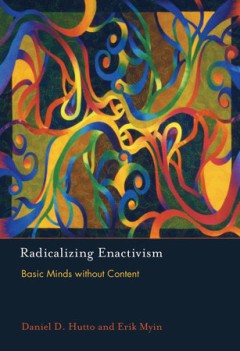
Radicalizing Enactivism: Basic Minds without Content
Hutto and Myin promote the cause of a radically enactive, embodied approach to cognition which holds that some kinds of minds - basic minds - are neither best explained by processes involving the manipulation of contents nor inherently contentful. It opposes the widely endorsed thesis that cognition always and everywhere involves content. The authors defend the counter-thesis that there can be …
- Edition
- -
- ISBN/ISSN
- 0262312174
- Collation
- 1 online resource
- Series Title
- -
- Call Number
- -
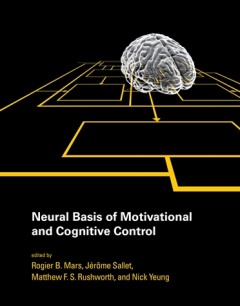
Neural Basis of Motivational and Cognitive Control
This volume offers a range of perspectives on a simple problem How does the brain choose efficiently and adaptively among options to ensure coherent, goal-directed behaviour?OCLC-licensed vendor bibliographic record.
- Edition
- -
- ISBN/ISSN
- 9780262298490
- Collation
- 1 online resource (xiii, 449 pages) :illustrations
- Series Title
- -
- Call Number
- -
 Computer Science, Information & General Works
Computer Science, Information & General Works  Philosophy & Psychology
Philosophy & Psychology  Religion
Religion  Social Sciences
Social Sciences  Language
Language  Pure Science
Pure Science  Applied Sciences
Applied Sciences  Art & Recreation
Art & Recreation  Literature
Literature  History & Geography
History & Geography